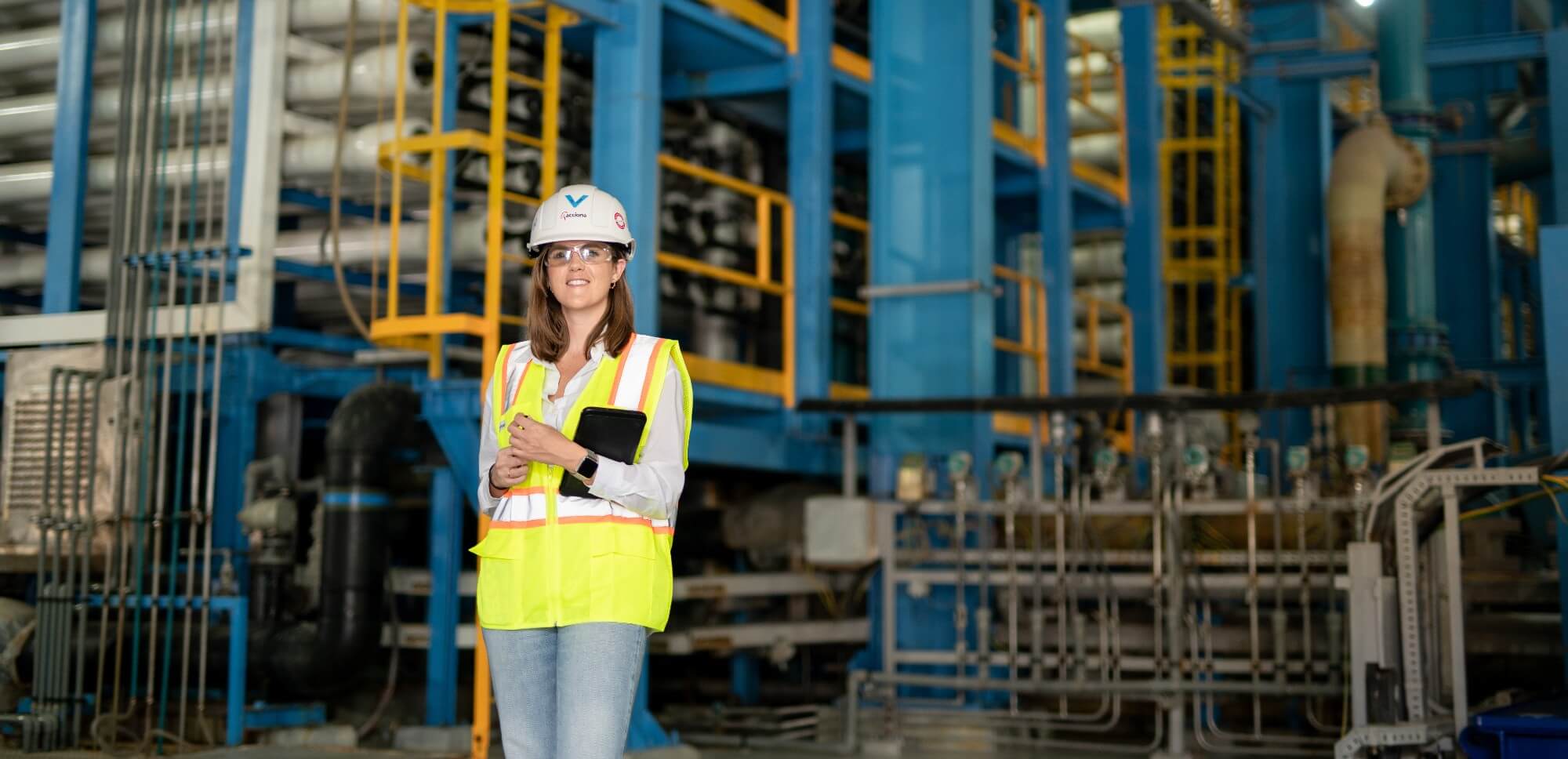Pilar says it was a matter of luck, although she also points out that luck “favors those who seek it.” She refers to the day she and her partner showed up at ACCIONA’s headquarters in Qatar back in 2017. Both engineers on an adventure, with their whole lives ahead of them. They had only been in the Arab country for a few weeks, but someone had told them there were opportunities at a desalination plant.
That day, one of ACCIONA’s Middle East executives was just passing through the office. They only crossed paths for an hour, but that conversation set the future for both the couple and, undoubtedly, for Pilar. It’s at ACCIONA where she has grown both as a person and a professional since she first knocked on their door, fresh from tossing her graduation cap into the air. And it’s from those very offices in Qatar that she now welcomes us as the operations manager of the Ras Abu Fontas 3 desalination plant.
Dreaming of a hard hat
Pilar hesitated between civil, chemical, or energy engineering, the latter being a newly inaugurated degree in Spain in the first decade of the 2000s. In that haze that are childhood dreams, she had seen herself with a hard hat, “as a site manager.” Although she had always been fascinated by processes, whether logistical or assembly lines: And she adds: “The so organized mass production seemed pleasant to me.” Her room must have been the epitome of order. She nods smiling: “I was always very organized, yes.”
So, she left Alcalá de Guadaíra, her hometown in the Spanish province of Seville, to study Chemical Engineering at the University of Seville. Her eagerness to grow and explore the world led her to enroll in an Erasmus program in Greece a few years later. There, she recalls the Mediterranean affinity but also the cultural shock of a country in crisis. “I was struck by things like having a professor who smoked in the classroom. I also encountered situations where I was asked for alms in the middle of an exam.” Greece would also be her first test as an expatriate.
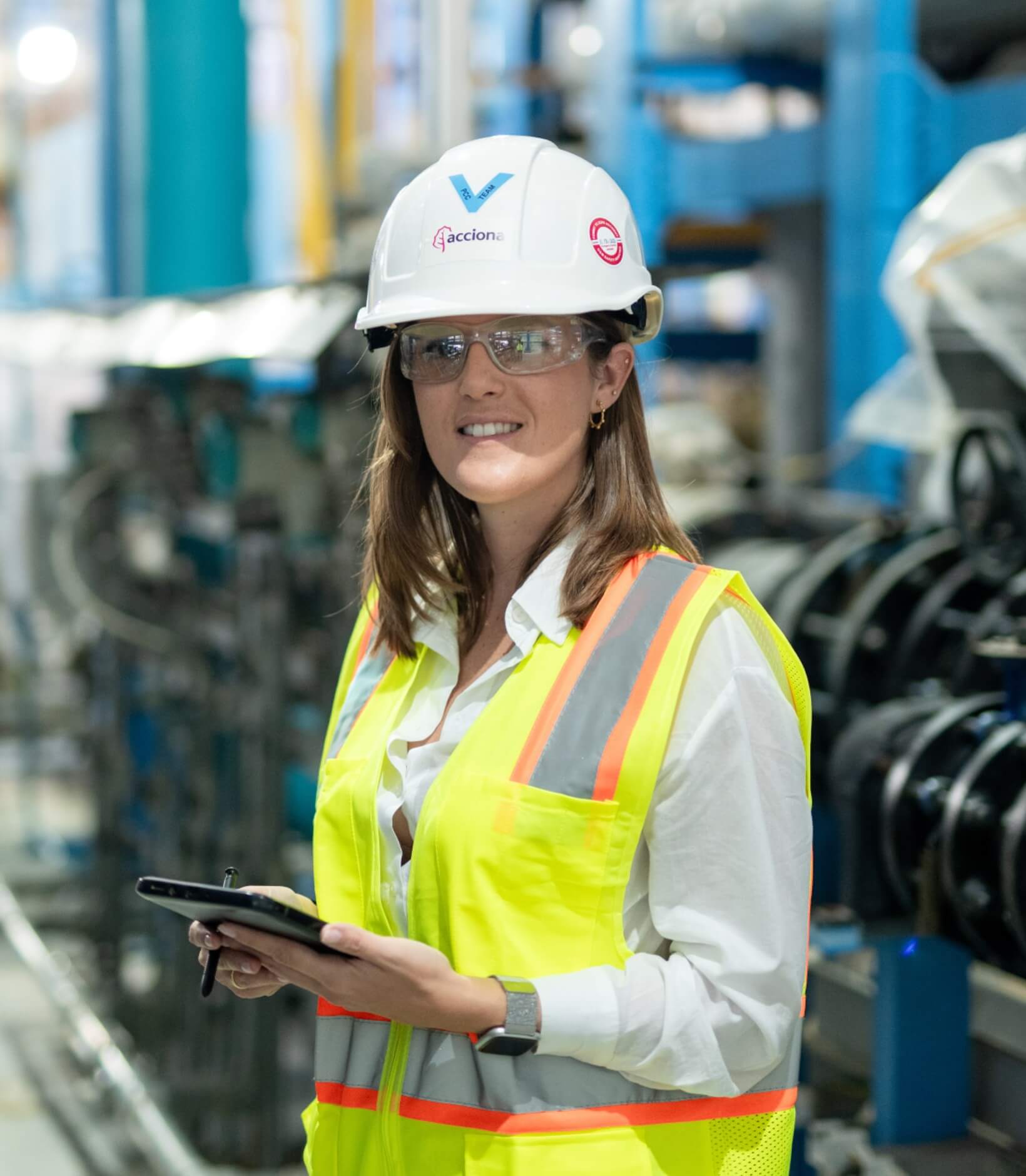
Venturing into the unknown
Perhaps, one way to measure Pilar’s life evolution is through the miles that separate her from her childhood home. First, it was leaving the village to study in Seville. From there, the move to Greece, where she completed her studies. And finally, the big leap: moving to Qatar. Google Maps suggests a 75-hour car route to cover the 4660 miles from her hometown to her current workplace.
Yet, the journey spans far beyond mere miles: it encompasses the cultural shift, the venture into an unknown language, and the transition from the lush banks of the Guadalquivir to the sands of the Arabian desert. “When I arrived and stepped off the plane, the first thing I thought was that I couldn’t breathe; it was like being in a sauna,” she recalled. Fortunately, it didn’t take long for her to adapt and make this new country her home.
She arrived there on her partner’s encouragement, eager to try their luck right after university. To do this, she had to overcome certain misgivings. “I literally thought they were going to trade me for two camels,” she explains. Although reality dismantled many of those prejudices, she did have to face numerous challenges: “I could enter the country, but if I wanted to leave, I needed the approval of my sponsor, which in my case was the company. And then, regarding dress codes, I indeed had to adapt to certain norms.”
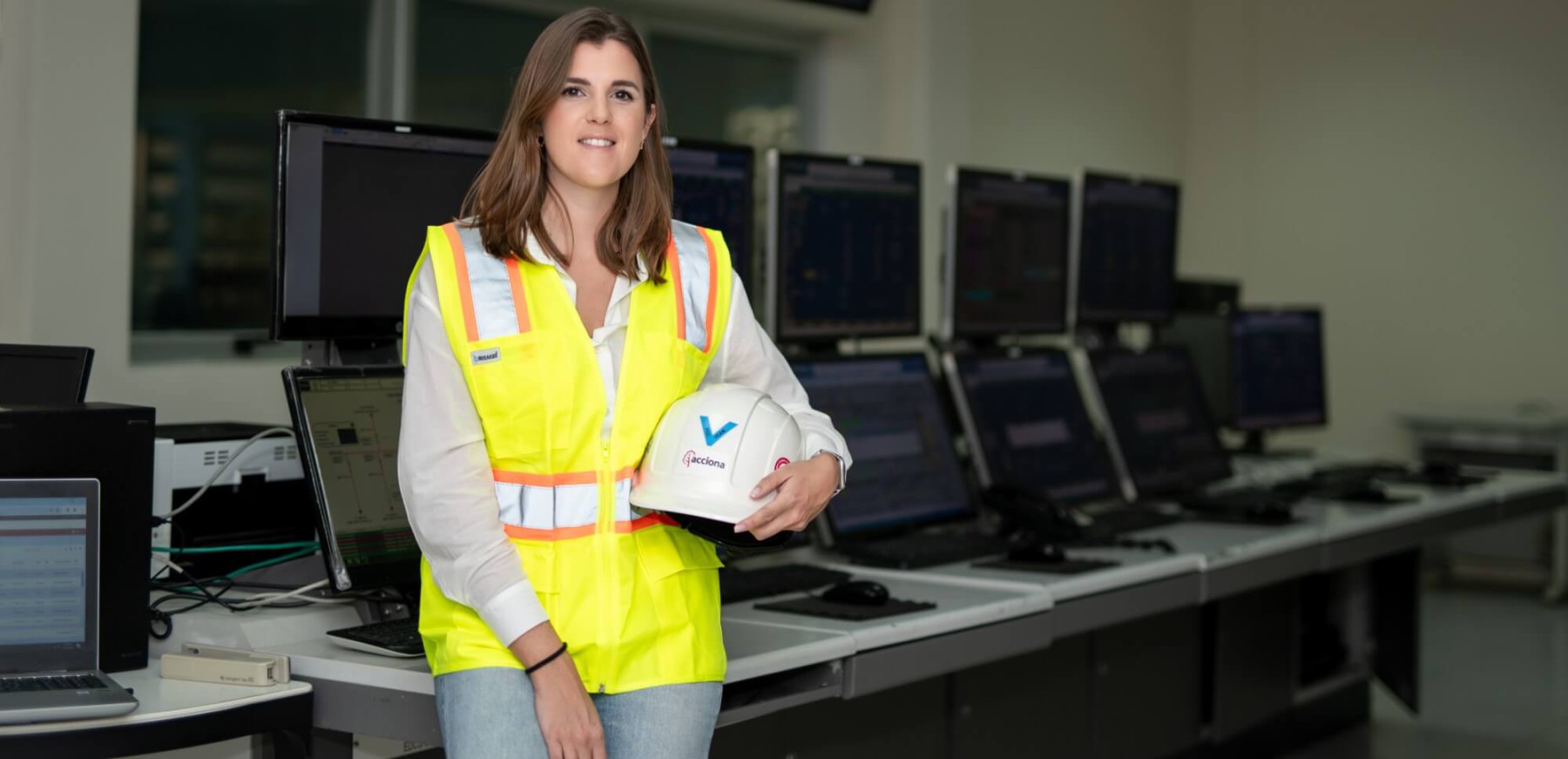
Finding her footing
Pilar wanted to work in her field, so the first thing they did was to network with the Spanish community in Qatar. There, they met a girl from the Service branch of ACCIONA who told them about an opportunity at a desalination plant of the company in the country. They had not been in their new destination for two months when they knocked on the door of the Water business, where they were welcomed with open arms.
“I believe that for ACCIONA it was surprising, finding people who want to voluntarily come to projects in the Middle East is unusual and suddenly there were not one, but two Spaniards at the door looking for work. I think it was a win-win. We wanted to work, and they wanted new talents.”
Initially, there was only one position available, but in the end, both found a place, each of them in one of the desalination plants of ACCIONA. “At that time, ACCIONA was starting a new operation and maintenance contract in Qatar. That is, they had a desalination plant since 2016 and in 2017 they began to operate a second one that almost doubled the production of the first one.” And she adds: “Back then we had no experience to contribute, but we had enthusiasm and attitude.”
“Back then we had no experience to contribute, but we had enthusiasm and attitude”.
A new job at a new plant
Pilar was assigned to Ras Abu Fontas 3, the first that ACCIONA built in Qatar in 2016 and that produces 164,000 m3 of drinking water per day. “It seemed attractive to me because, although it was smaller [than the other ACCIONA plant], it covered a broader process, since it included remineralization after reverse osmosis.” his role not only involved overseeing the entire water cycle but also gradually ascending through the company’s ranks. She started as an operator supervisor, fulfilling her childhood dream of wearing a “construction manager’s hard hat.”
Pilar took on the responsibility of leading an international team during the initial phase of setting up the infrastructure. “In those first years, I was more on the field than in the office; they were very challenging years, like starting any new project, especially for me with no prior experience in something similar.”
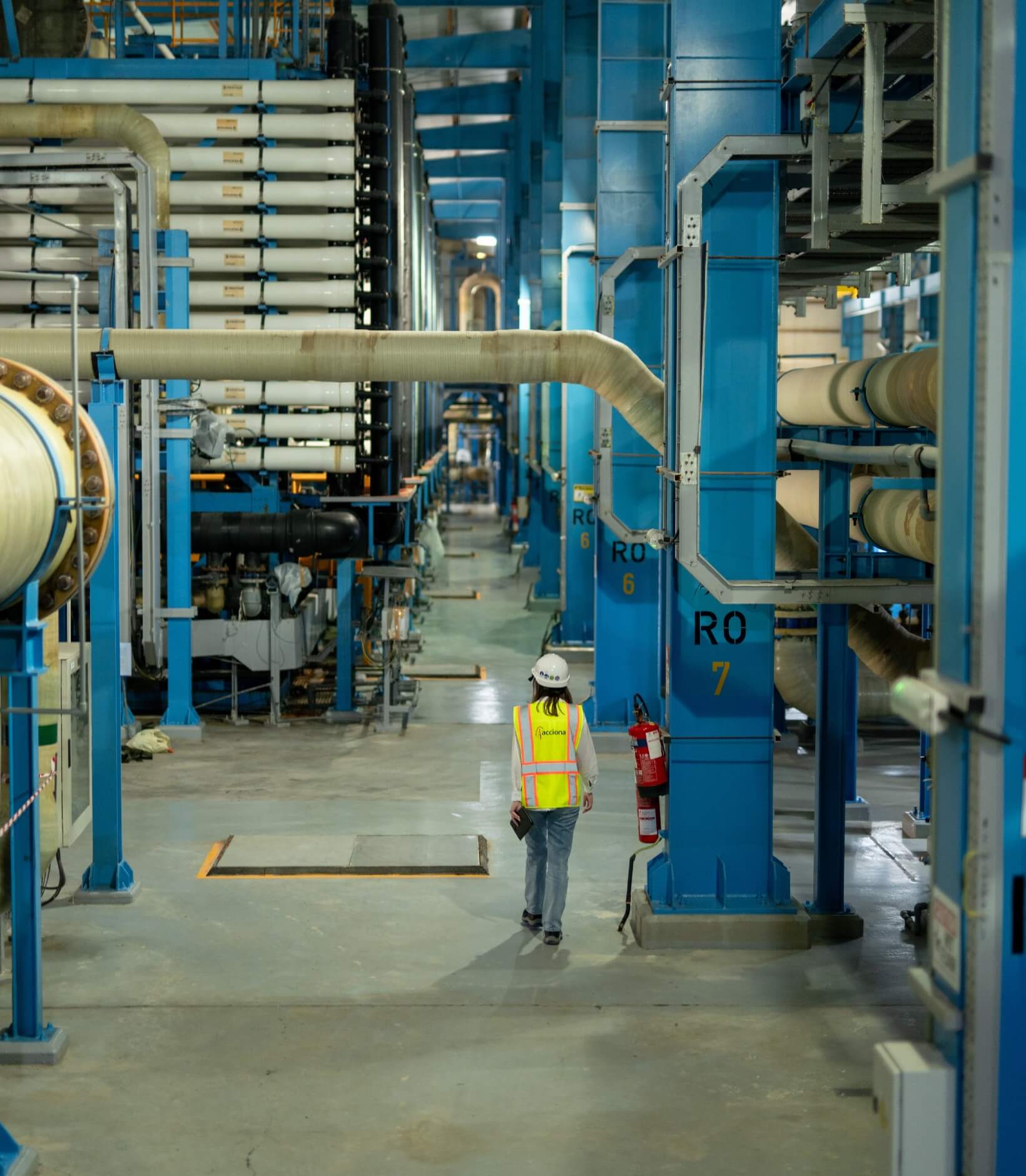
When Pilar joined Ras Abu Fontas 3, there were only two women at the plant. How did she manage in a man’s world? “In my case, I didn’t notice any discrimination. Everyone helped me as much as they could, and well I don’t know if it was because I was a woman, but I felt very loved, accepted, and respected.” From that point, she would climb the ladder to become the deputy operations manager.
“From the beginning, I felt very loved, accepted, and respected. In my team, I never noticed any discrimination for being a woman”.
The importance of mentorship
The classic proverb says that if you want to go fast, go alone, but if you want to go far, go together. This was true for Pilar’s journey, marked by the significant support and mentorship of Pedro Cortés Reyes, former operations manager of the desalination plant. “I’d like to give him a nod, because I learned a lot from him during that time as a deputy,” she shares.
However, she highlights one thing above all: “He is someone who is always looking for continuous improvement. And that inspired the rest of the team to never give up and to always keep learning and working to achieve better results.”
“My supervisor was someone who always looked for continuous improvement, and that inspired us.”
Over time, Pedro Cortés left the position to become plant manager and Pilar replaced him at the forefront of daily operations.
Empowering women in the workplace
Now, Pilar serves as the operations manager, marking over six years at ACCIONA, where she’s witnessed—and played a key role in—a transformative era. The plant has seen significant, continuous growth, thanks in part to operational enhancements like installing a turbine to harness residual energy from water flows, among other upgrades. This growth is also reflected in diversity, “If we were just two [women] at the plant back then, now we are eight, with five of us on the operations team.”
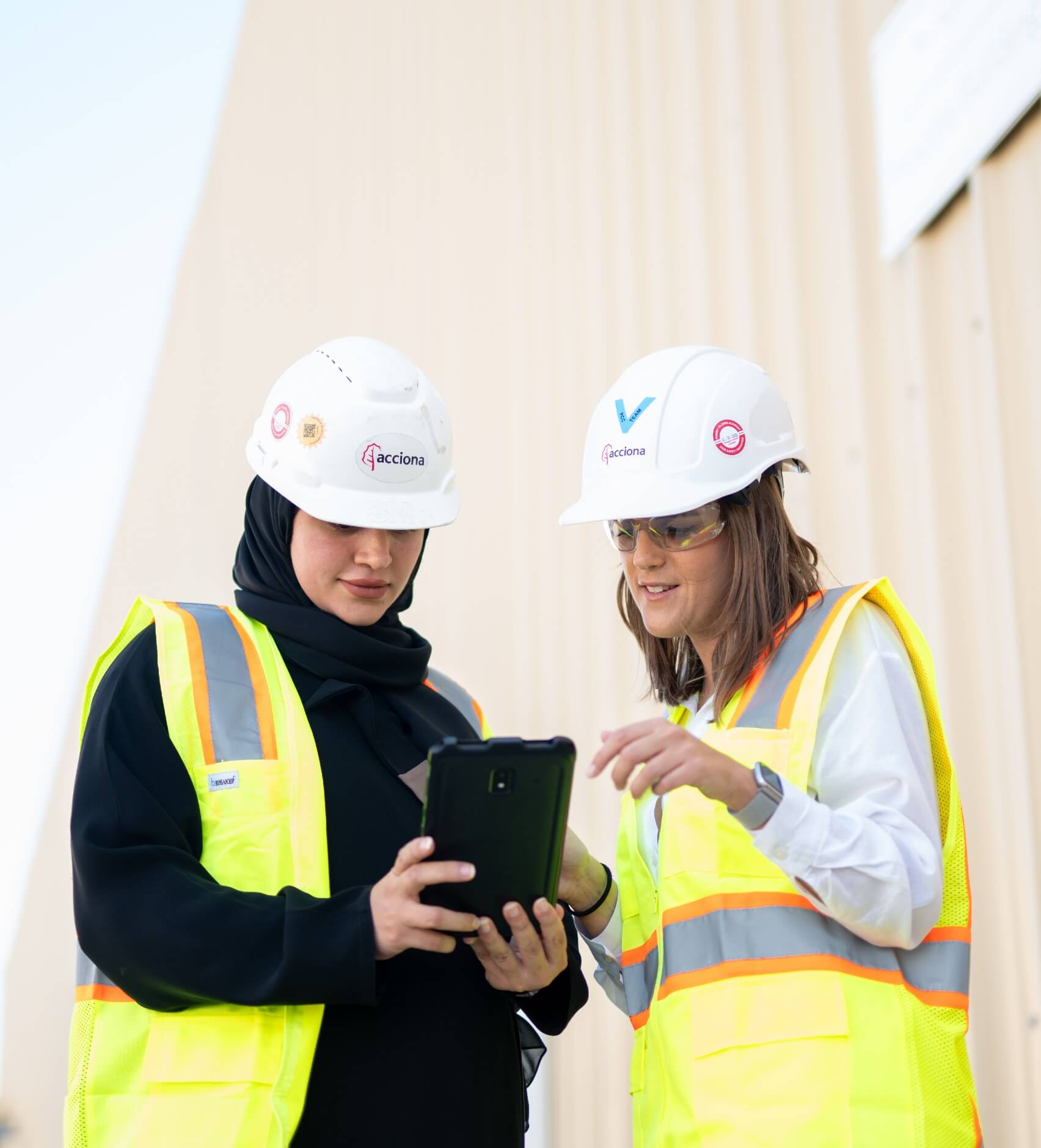
“The number of women at the plant has significantly increased. ACCIONA strives to be a benchmark in this regard. In fact, both here and at our other desalination facility, we’re now including women in the electrical maintenance and communications teams,” she remarks.
A real impact
Beyond her insights into women’s work realities, our protagonist takes a moment to consider the significant impact of ACCIONA’s desalination efforts in the Middle East. “Qatar, a country that began its development just fifty years ago, has been continuously growing and grappling with freshwater scarcity. I believe we’re making a substantial impact in these regions. It fills me with pride to provide water to communities that would otherwise lack access.”
“It fills me with pride to provide water to communities that would otherwise lack access.”
Pilar highlights ACCIONA’s pivotal role in adopting more sustainable desalination technologies, notably through reverse osmosis. Reflecting on this shift, she notes, “In the past, Qatar relied solely on evaporation-based desalination. By embracing technologies like reverse osmosis, we’ve achieved significant energy savings in this field. ACCIONA has given me the chance to advance professionally in one of the most cutting-edge technologies available globally.” This transition underscores ACCIONA’s commitment to environmental sustainability and innovation in water treatment processes.
Advice for the next wave
Today, the life of Ras Abu Fontas 3’s Operations Manager unfolds with routine normalcy in Qatar. Looking back, she points out that one of the advantages of her adventure has been how quickly she has climbed the ranks in the organizational chart, “Here, role rotation is more agile than in Spain.” However, she acknowledges that this also entails its own challenges: “It is necessary to quickly adapt to what comes next, be ready for the next challenge both in professional terms and, of course, in cultural and climatic aspects. Keeping curiosity, continuing in constant development, and always with that hunger for learning is essential.”
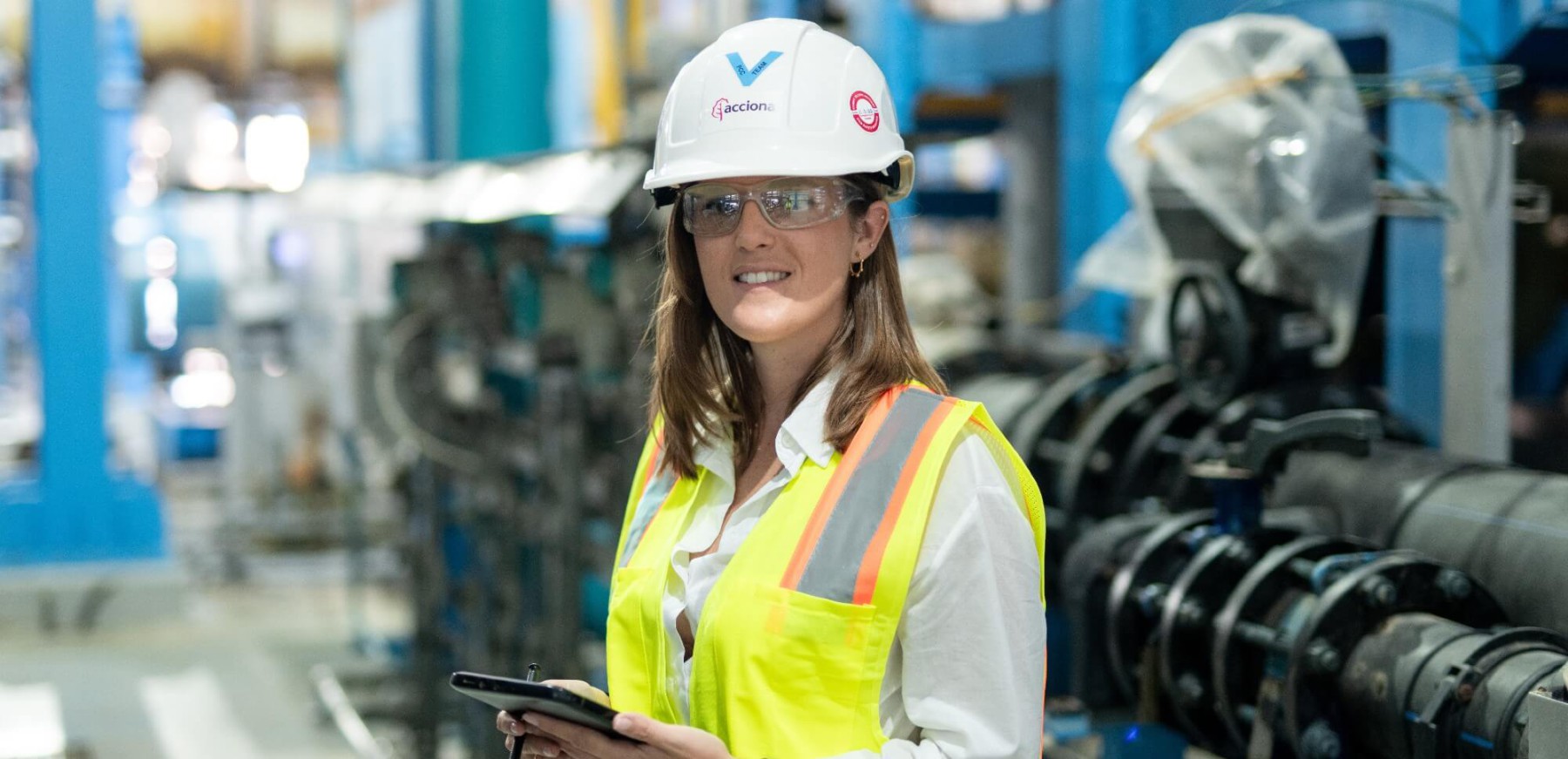
What would be her advice for someone who has just arrived at the company? “To put all the attitude and eagerness you can; to believe in yourself, trust your talent, and develop. Often, I think we hold back because we don’t know everything. And it’s not necessary to have all the answers from the beginning; what you need are the tools to develop your knowledge.”
“You don’t have to know everything from the beginning; what you need are the tools to develop your knowledge.”
As far as you want to go
Now that the conversation is drawing to a close and Pilar must return to her plant responsibilities, she seizes the moment to share a scoop: “I am really excited to be able to continue my professional career at a new desalination plant that is being built in Qatar. I would love to apply all my experience and contribute to the success of the start of this new project.”
As evident, Pilar’s career, just reaching her thirties, is far from having peaked. Before bidding farewell, and now on the brink of taking a new leap in her career, she offers us a reflection on her trajectory: “I firmly believe in the importance of my path: growing gradually, climbing one step at a time without skipping any has allowed me to know each process in detail, which, in turn, facilitates my development in the next steps.”
And what would be that next step? “At this moment, my next step would be to take the position of plant manager, but my ambition goes further. I aspire to reach the next level, which implies a broader and more strategic position in the global management of projects.”


